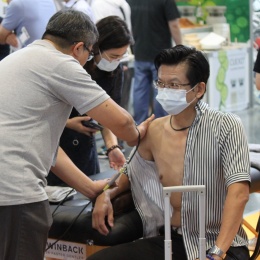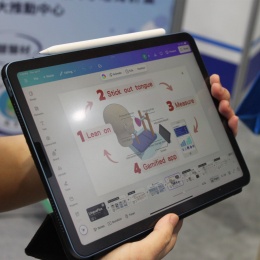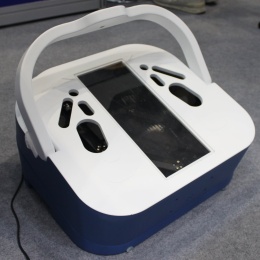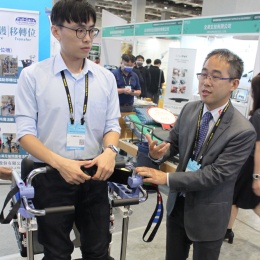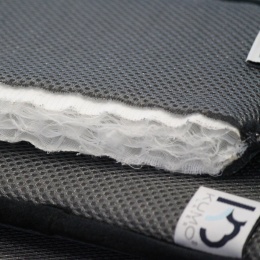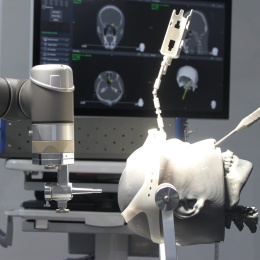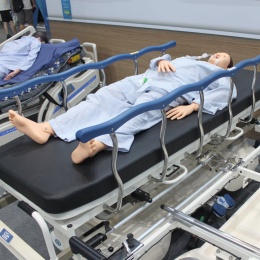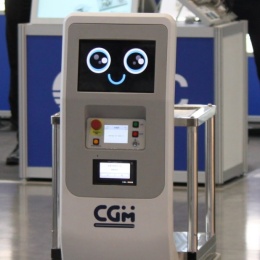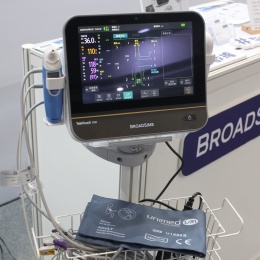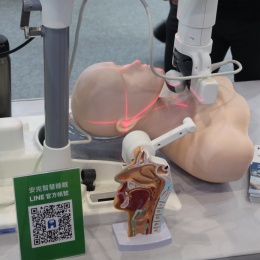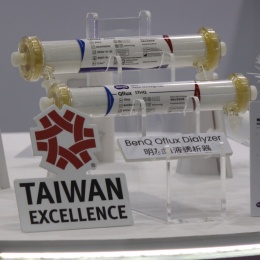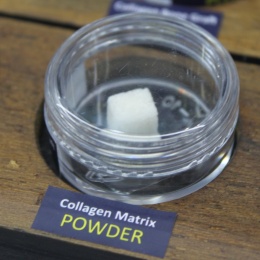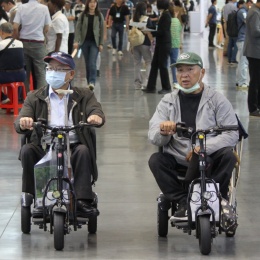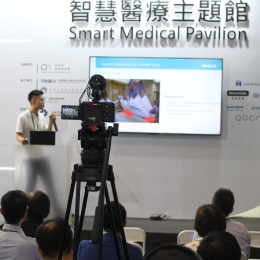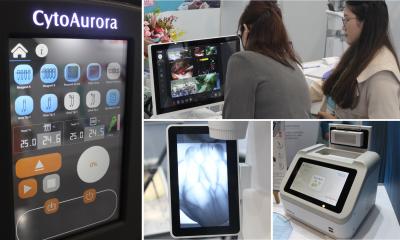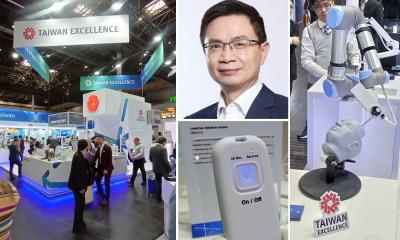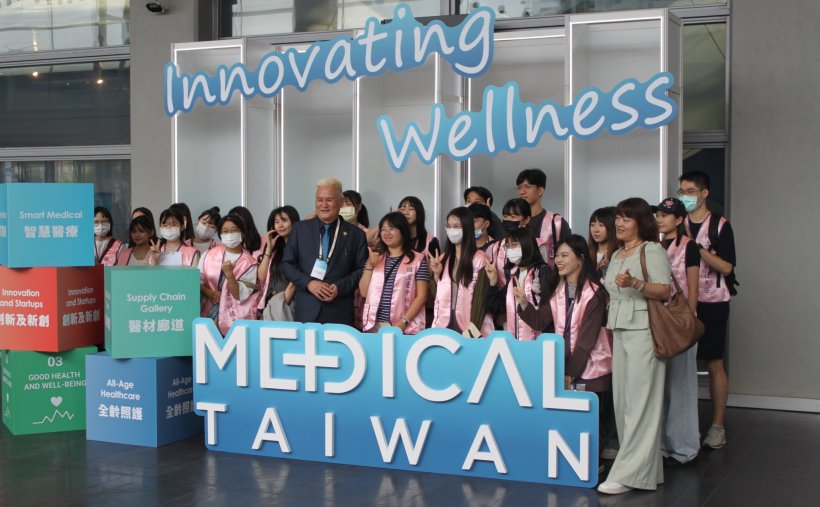
Photo: HiE/Behrends
Article • Medical Taiwan 2025
Accelerating the journey of AI into clinical practice
Medical Taiwan has long been a showcase for cutting-edge healthcare solutions, but this year marked a pivotal moment. Visitors of the latest edition of the medical, health and care expo in Taipei witnessed a particularly noticeable step forward: the definitive transition of medical AI from promising research to actual clinical practice. Organized by the Taiwan External Trade Development Council (TAITRA), the show featured more than 300 Taiwanese and international companies, ready to pioneer this new chapter in medical technology.
Article: Wolfgang Behrends
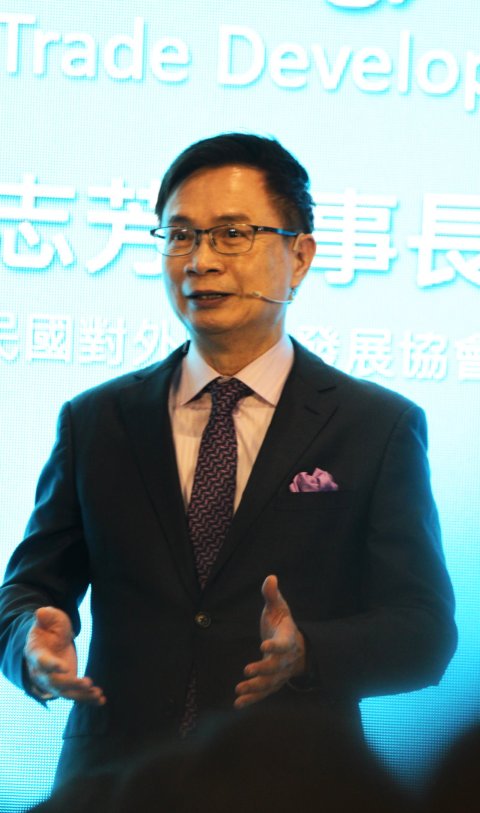
Photo: HiE/Behrends
‘AI is not the future – it is already here.’ With this statement, TAITRA Chairman James C.F. Huang made it clear just how far the technology has come in healthcare within the last few years. Unlike previous years that highlighted AI's potential, Medical Taiwan 2025 demonstrated working solutions already transforming patient care. To get ready for this paradigm shift, the TAITRA Chairman invited his audience to enter a ‘profound dialogue about the future of health’ – an invitation that was eagerly accepted by the attending companies, who took the opportunity to present their market-ready solutions, from AI-assisted X-ray diagnostics of conditions like lung cancer, to hospital ward management support systems. According to the organizers, 15,000 visitors attended this year’s show, reflecting the immense interest in the presented healthcare topics and solutions.
Addressing the global trend of an ageing society and the growing demand for more dignified, human-centred medicine, a significant part of the event revolved around utilizing AI and digitization to create smart and flexible solutions, while providing a comprehensive platform for healthcare companies and start-ups to promote their products and establish valuable trade networks.
Shift from treatment to prevention
With advances in medical technology, the industry is placing a greater emphasis on prevention. GKT's Winback radiofrequency systems exemplified this preventive approach, targeting pain reduction and tissue regeneration before conditions worsen. Detailed information on the systems and hands-on demonstrations made the Winback booth a popular destination for many visitors across the three-day event.
Focusing on the potential of digitalization, the telemedicine and smart medical devices pavilion was home to promising solutions such as the LinguaFlex system from TMU startup FlexMed, which uses gamification to encourage tongue muscle training. The device and app-based setup can be used to treat obstructive sleep apnea, dysphagia, and speech impairments, the exhibitors stated. Another university startup, DMolution, presented a data-driven approach to diabetic foot care. Their AI-supported system evaluates information gathered by a sensor to early detect patterns of impaired circulation in the feet due to diabetes, preventing permanent damage.
Enhancing patient comfort was in the spotlight at the booth of Ya Hai International. The company showcased a wide range of medical products, including advanced mattress toppings with high form stability and heat dissipating “air tunnels”, sensor mats for nonintrusive patient position monitoring, and smart bed lighting systems. Further, the use of modular components allowed for highly customizable care lifters, patient transfer solutions and gait trainers. This feature is designed to reduce the workload of care staff and adapt the systems to the individual needs of each patient, the exhibitors pointed out.
Generative AI to assist pre-consultation
With the first wave of medical AI tools successfully entering the market, the next iteration is not far behind. AI-based large language models (LLM), popularized by the launch of ChatGPT, are showing particular promise for healthcare applications. Pioneering this approach, Taiwanese company Intowell Biomedical presented “Dr. AI”, an LLM-based platform designed for medical pre-consultation.
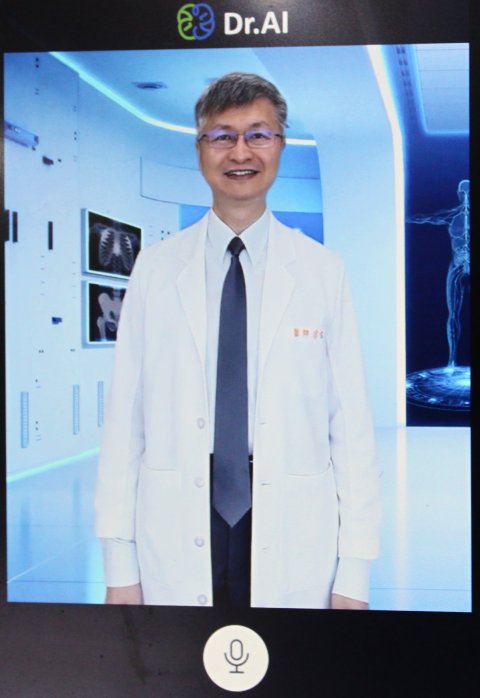
Photo: HiE/Behrends
As the company’s CMO Jack Huang explained, patients simply speak into a wearable device such as a smart ring, and the AI provides preliminary health assessments in 38 languages across twelve medical specialties. The system can assist in booking an appointment with a doctor based on the symptoms described in the recorded conversation, and can also generate a record for the doctor to use.
The company envisions “Dr. AI” to become an all-round companion for patients on their medical pathway. ‘For example, when you scan a prescription, it turns into a pharmacist,’ Huang said, providing easy-to-understand information on the prescribed drugs, helping with medical terminology and deciphering instructions in small font sizes.
‘The system is not designed to replace doctors,’ the CMO emphasized, but to serve as an intelligent assistant, handling routine tasks so doctors can focus on complex patient care. This reduces the workload of medical professionals, for example by auto-transcribing doctor-patient communication and generating structured SOAP (Subjective, Objective, Assessment and Plan) reports to be integrated into a patient’s electronic medical record. The system can offer diagnostic support, advise on additional tests and potential complications, and generate nursing instructions for care staff.
Regenerative solutions and digital twins
The field of regenerative medicine was also well-represented at Medical Taiwan. Notably, company Acro Biomedical showcased its “ABCcolla” collagen ophthalmic matrix for corneal transplants, as well as upcoming solutions for alopecia. ‘Our decellularization technology provides highly biocompatible structures,’ said Dr DJ Hsieh, the company’s Chairman and CEO. ‘Our vision is to address the global shortage of transplantable tissues and organs.’
Photo: HiE/Behrends
Present with one of the largest booths at the event, BenQ Group led the showcase with 13 affiliated brands – including BenQ Materials Corporation – and presented a comprehensive range of healthcare solutions covering prevention and beyond. From AI-powered imaging evaluation systems and “digital twin” platforms for health data analysis to consumables such as professional hygiene materials, disinfectants, protective garments, wound care solutions and mobile dialysis systems, the company provided an overview over their extensive product portfolio, attracting a great number of visitors.
AI-assisted gait training and new solutions for home care
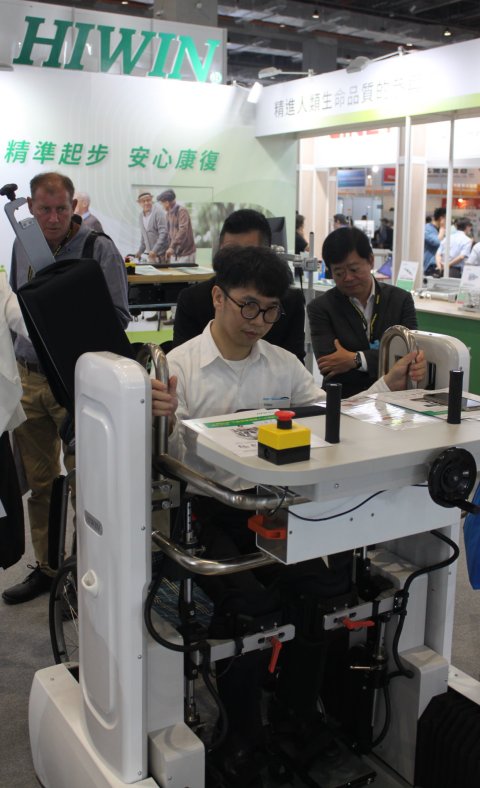
Photo: HiE/Behrends
Utilizing the benefits of new technology, Hiwin Healthcare presented an AI-enhanced robotic gait training system. The device, designed for rehabilitation and motion training, monitors the patient’s movement to generate a personalized training regimen. ‘The algorithm detects whether the patient is performing the correct movement, and adjust the programme accordingly,’ explained the company’s Senior General manager Sophie Lin. ‘This way, the optimal level of exercise is provided.’ The system, which is already used in 21 hospitals across Taiwan, is designed to reduce the workload of therapists and support patients in regaining muscle strength, for example after sarcopenia.
The growing market of home care was addressed by the solutions of Medical Master. At Medical Taiwan, the company showcased their product range of hospitals beds, stretchers, transport chairs and medical carts, but also more appealing options for use in nursing homes and for patients at home.
Smart medical devices to address medical staff shortage
A staple of any Medical Taiwan event, the Smart Medical Pavilion was home to high-tech applications across three main areas: operating room, intensive care, and AI in medical imaging. The special zones gave manufacturers opportunity to exhibit their combined solutions in a context resembling actual clinical configurations. Notable examples included a setup consisting of a smart surgical table and OR lighting from BenQ, complementing the strengths of a robotic system for precision neurosurgery from Eped.
When commercially available AI tools do not fit the specific clinical needs of a hospital, institutions may try to create customized algorithms for themselves. To facilitate this effort, QOCA aim from Quanta Computer Inc. provides a medical cloud platform, which covers the entire process from AI development to clinical application. The solution is web-based and user-friendly, but since the data is hosted in the hospital’s internal network to address data privacy concerns.
Since staff shortages are becoming an increasingly urgent issue in clinical settings, the pavilion also presented innovative solutions to address this problem. The devices ranged from patient repositioning and support surfaces from Wellell, new bed transfer solutions from Chang Gung Medical Technology (CGM), a smart patient monitoring system from Broadsims, to AI-assisted ultrasound detection tools for thyroid cancer and obstructive sleep apnea from AmCAD. Medimaging Integrated Solutions, Inc. (MiiS) showcased the latest features of their “Horus Scope” an AI-enhanced retinal image analysis system and new wound care monitoring tools. Last, but not least, EBM Technologies presented EPS Pi, a comprehensive DICOM device for medical image integration and management.
Medical Taiwan 2025 provided impressive testament to AI in healthcare moving beyond proof-of-concept to practical reality. After witnessing three days of innovative medical devices, health technology and care solutions, the show’s organizers and exhibitors looked back on another successful iteration of Medical Taiwan, and forward towards the show’s return in 2026.
09.07.2025



